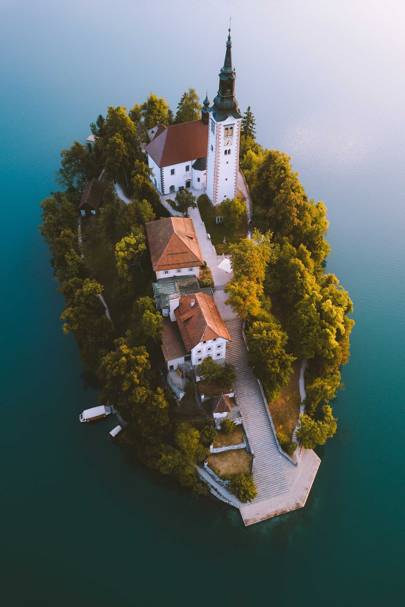
SLOVENIA
Perfectly preserved landscape and landmarks
This compact Central European country, with its chocolate-box mountain scenery and medieval fairy-tale villages, punches above its weight in the conservation stakes. Its walkable, welcoming capital, Ljubljana, has long been a hit for eco-minded city breaks. And more than a 10th of its rolling countryside is formally protected, spanning Alpine peaks, ancient forests, Karst plateau, the Pannonian plains’ vineyards and thermal waters and the 29-mile stretch of Adriatic coast. Consult the tourist board’s Green Scheme of Slovenian Tourism to navigate your way to the greenest hosts and camping sites.
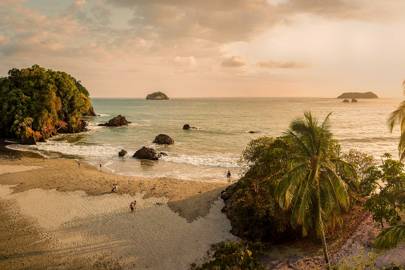
COSTA RICA
Sprawling, UNESCO-protected nature
Here between the Pacific Ocean and the Caribbean Sea, more than a quarter of this Central American nation is set aside as protected parks and reserves, which are a precious safeguard against deforestation and logging. Three of the country’s national conservation areas and parks are UNESCO-protected, and much of its electricity is renewably sourced. Home to almost six per cent of the world’s species, Costa Rica is a world-leading protector of biodiversity, and it’s a dream holiday destination where you’re sure to encounter a dazzling cast of wildlife at every turn. Find out more from the Costa Rica Tourism Board.
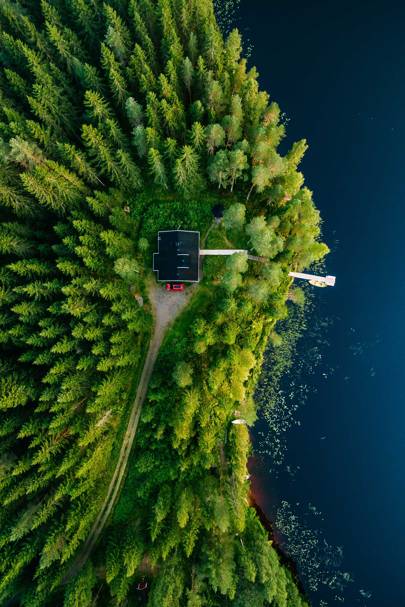
FINLAND
Clean energy, freshest air
Almost 80 per cent of Finland’s land is forest; its lakes are among the clearest and its air the cleanest in the world, according to the World Health Organisation. Well done to Visit Finland for launching its Sustainable Finland programme. The tourist board’s guide maps out a blueprint to help visitors plan the most eco-friendly escapes and engage with nature and local culture, knowing every step of their stay has been looked at through an economical, ecological, social and cultural lens. Finland also ranks as a hero on Yale’s Environmental Perform Index, which assesses 180 countries on environmental health and ecosystem vitality; plus the capital, Helsinki, is the city credited with making the biggest commitment to sustainability when it comes to public transport, which runs on electricity produced by water and wind power.
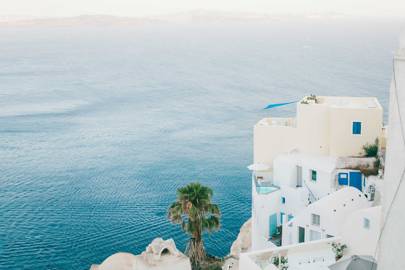
ARTGREECE
Local and seasonal food that leaves a good taste
Offering honourable provenance and a supply chain that’s made up of small local producers is, and always has been, the Greek way of doing things. We definitely need to keep raising the issue of their single-use plastic consumption, but when it comes to organic farming, small producers and family-run food and drink providers, this appealing Southern European holiday destination has always followed local and seasonal principles. Few global beach resorts are in destinations where people are able to grow and graze their own ingredients, and consequently many often have menus that rely on long-distance importing of fossil-fuel-dependent farmed goods, which then require significant processing and storage – all this deducts points in the sustainability stakes. Agriculture, as a sector, is one of the biggest contributors to the climate emergency, and often what we eat while we’re away is overlooked when judging our carbon footprint – so the fact the Greeks naturally serve dishes that help keep our foodprint low earns a thumbs-up.
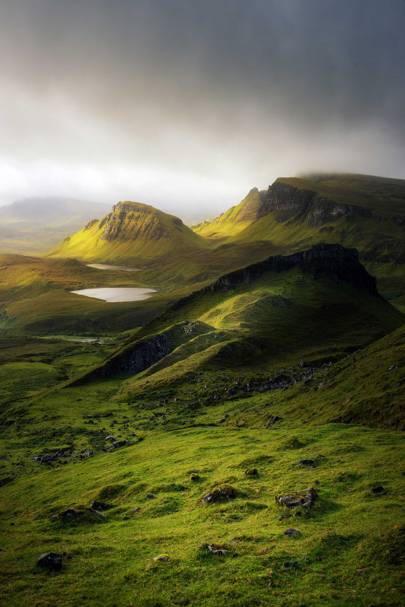
SCOTLAND
Get close to nature, close to home
Reconnect with wilderness and savour all things hyperlocal in a country that was the first to sign up to Tourism Declares a Climate Emergency – an initiative launched at the beginning of 2020 to encourage the tourism sector to reduce carbon emissions. All eyes deserve to be on the Isle of Eigg for being the first community to go entirely off-grid, thanks to wind, hydro and solar energy, back in 2008. Huge swathes of the country are also being rewilded. On the mainland, the European Nature Trust is behind the conservation of 23,000 acres of the Scottish Highlands at Alladale Wilderness Reserve, while Anders Holch Povlsen and his wife Ann, owners of H&M, are letting more than 200,000 acres across Sutherland and the Grampian mountains run wild. The Scottish National Health Service not long ago began to prescribe time in nature, recognising the benefit to mental health and physical wellness, and Scotland’s tourist board runs a Green Tourism certification scheme to badge the eco-friendliest accommodation providers.
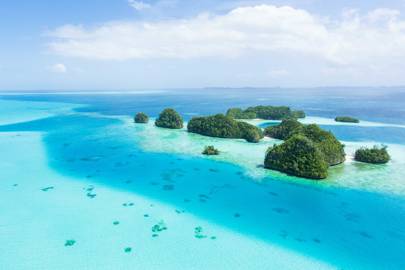
PALAU
Where tourists sign an eco pledge
Back in 2017, this Pacific Ocean island was the first destination anywhere to insist visitors sign a voluntary eco pledge promising to be good environmental stewards for the duration of their stay, via a passport stamp. Until all countries introduce this, they’ll always have a top place in our hearts for setting this benchmark. Paloma Zapata runs Sustainable Travel International, an organisation dedicated to protecting destinations and preserving natural environments, and she praises Palau for its conservation of land and sea. Zapata makes a comparison with other island destinations that have followed old-fashioned tourism models and back in the 1980s allowed high-rises to be built by beaches, causing coastal erosion and destroying precious carbon-absorbing mangrove areas. We salute Palau for being considerate of local communities and making it easier for travellers to treat their home respectfully.
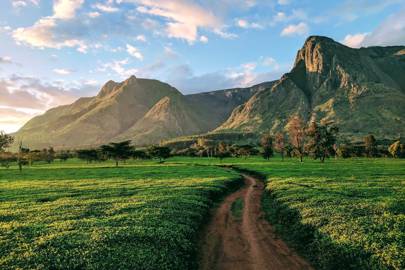
PORTUGAL
Where a commitment to positive tourism is mandated
This westernmost swathe of Europe is proving to be one of the most forward-thinking in demonstrating how tourism can be a force for good. As well as having the come-hither appeal of a compelling coastline, history and culture, the fact that four years ago Portugal mandated that 90 per cent of tourism businesses would comply with rules governing water, waste and energy use by 2027 gives the country a green halo. It’s not as sexy as hearing about its many fantastically stylish boutique hotels, but it’s what we need more governments to do. With a 10th of its population employed in tourism, Portugal invests significantly in educating its people about sustainability. And its tourist board provides tools to ensure it delivers high-quality, low-impact tourism while keeping visitors who arrive post-pandemic as happy and healthy as can be.
Read More: cntraveller


